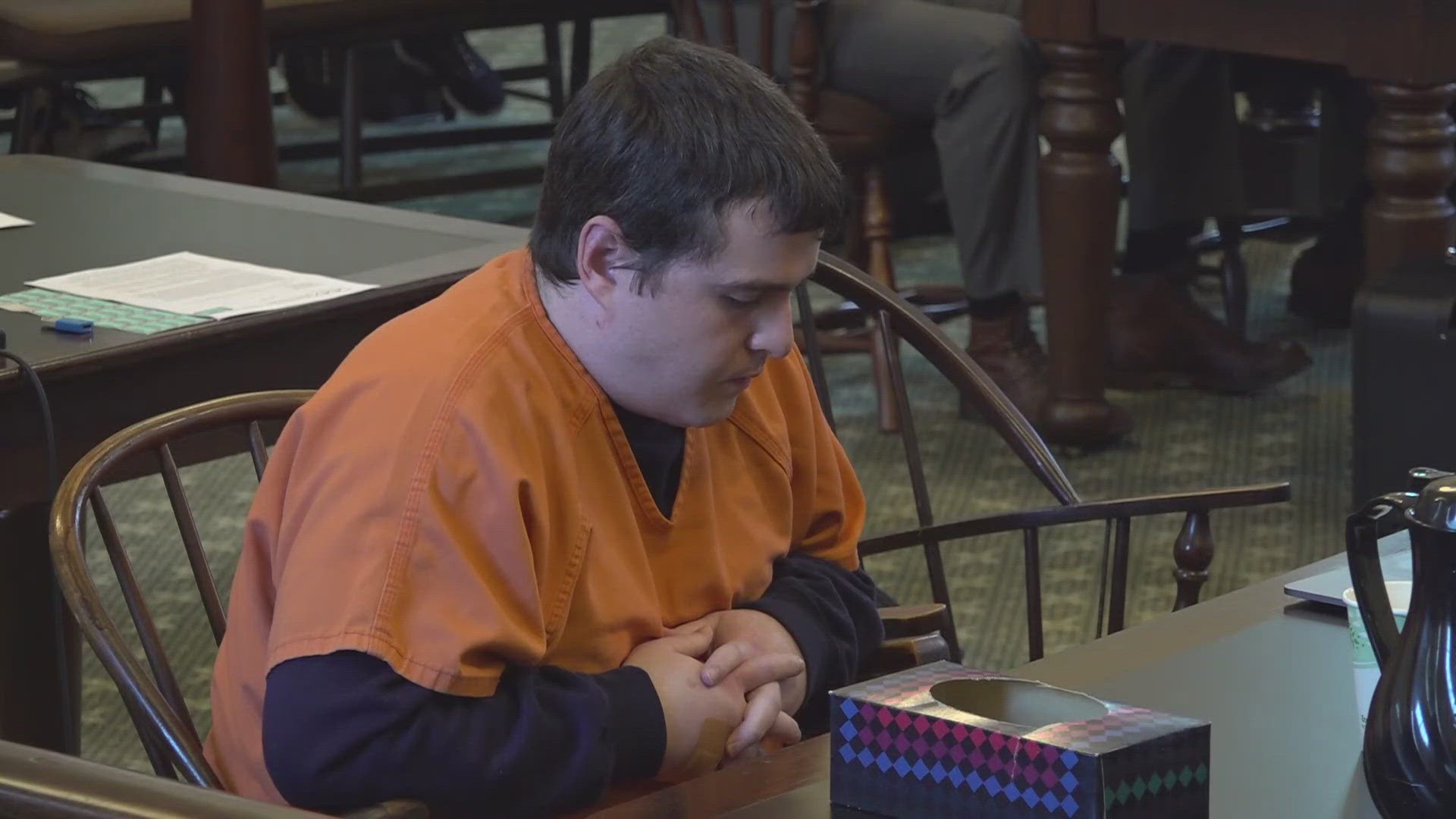WISCASSET, Maine — The Edgecomb man accused of killing a three-year-old nearly two years ago appeared in a Lincoln County courtroom Tuesday for a suppression hearing.
Tyler Witham-Jordan was charged with depraved indifference murder in the death of three-year-old Makinzlee Handrahan on Christmas morning in 2022.
Defense attorneys and state prosecutors debated Tuesday in the Lincoln County Superior Court, going back and forth about what evidence the judge should allow to be presented to jurors during Witham-Jordan's trial, which is expected to begin in the next two months.
According to court documents, the child died from blunt force trauma. Court documents show that investigators also found Witham-Jordan's DNA under the victim's fingertips, on a broken hairbrush, which was found in the bathroom, blood spots on the wall in the bathroom, blood and other DNA on a shirt, on a towel, on the victim's diaper, and DNA collected from other places in the home.
Defense attorney Jim Howaniec filed a motion requesting to excuse DNA evidence from the case, explaining that Witham-Jordan lived in the home and that his DNA was likely to be found in various places.
Howaniec claimed that it is not uncommon for blood spots to be found in the bathroom, explaining that Witham-Jordan struggled with drug use, and that he frequently used needles to inject heroin in the bathroom. He argued that blood from Witham-Jordan's needles could easily be the source of the blood spots located in the bathroom.
Howaniec explained that other DNA samples that were collected at the scene were not relevant to the case because forensic experts can't determine when DNA might be deposited onto a surface or item.
He also argued that the DNA evidence should not be admissible in court, and he further claimed that state prosecutors did not have enough substantial evidence to prove that Witham-Jordan committed the crime.
"That's how innocent people get convicted of crimes. The state has a theory about what happened, but they have absolutely no evidence that this guy committed this crime," Howaniec said. "They have no evidence. There's no witness. There's no snitches at the jail who have come forward."
State prosecutor Jennifer Ackerman rebutted, explaining that it is common to use DNA evidence in a case like this.
"We heard from Detective Moore, and it was on the report that [the child's mother's] DNA was not found on that hairbrush, it was not found on that diaper, it was not found on her fingernail," Ackerman said, explaining why DNA evidence should be admissible in court. "So, that certainly is relevant when the defendant is pursuing an alternative suspect theory."
Howaniec suggested that Witham-Jordan and the victim's mother were the only adults in the home at the time of the murder.
He said that the victim's mother was struggling with her mental health, and shared that she allegedly suffers from bipolar disorder. He also said that she has a history of blacking out and being unable to recall her actions.
Howaniec also heavily criticized the mother's previous testimonies with detectives about her recollection of the events leading up to the child's murder.
Howaniec pushed further, filing a motion to subpoena the victim's mother's medical records, claiming that she was likely responsible for her own child's murder.
"About the only thing that we agree with in this case is that there was a homicide," Howaniec said as he explained that he and the prosecution were in agreeance on one fact. "This young girl did not die by accident. She was brutally and savagely murdered. I guess the other thing we agree with the state on is that there is zero evidence of there being an intruder in this case, and I think we're in general agreement that none of the three other children in the household committed the homicide. So, that leaves two adults in the household. One of whom likely murdered Makinzlee Handrahan, and one of whom who had been diagnosed with bipolar disorder."
Howaniec's request to subpoena the child's mother's medical records was heavily criticized by Ackerman.
"This is a character assassination," Ackerman said. "And that's essentially what he's trying to do. ... These are presumed confidential records for very important reasons, and they are not to be reviewed at his whim to see if there's something there. There's nothing there that could be used in this wholesale character assassination that he is trying to attempt."
The judge rejected the request to subpoena records and the request to exclude DNA records.
The court clerks said they will have a better idea about what day the trial will begin after Oct. 17.

